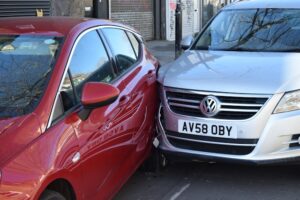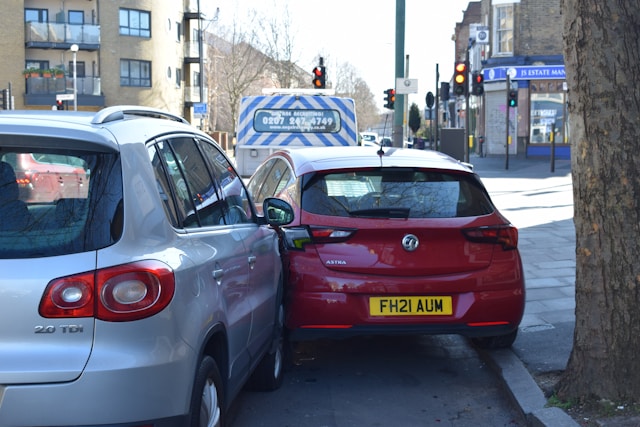Car accidents can turn your world upside down, leaving you grappling with physical injuries, emotional trauma, and financial strains. Understanding the types of damages you can claim is essential for navigating this complicated process. It’s not just about getting your car repaired or covering medical bills; various categories of compensation may apply to your situation. A lawyer will help you determine the damages you can pursue and how much you may be entitled to. If you don’t have one, consider hiring a car accident lawyer chicago. Knowing what you’re entitled to can make a significant difference in your recovery journey, whether you’re dealing with immediate expenses or long-term consequences. Let’s break down these different types of damages so you can approach the aftermath of an accident with confidence and clarity.
Economic Damages
 Economic damages focus on the tangible financial losses you incur after a car accident. These are often easier to calculate and document, making them a crucial part of your claim. Medical expenses are at the forefront. This includes hospital bills, rehabilitation costs, and any ongoing treatments related to your injuries. Each receipt tells a story about the care you’ve received. Lost wages also play a significant role in economic damages. If your injuries prevent you from working, those lost earnings can add up quickly.
Economic damages focus on the tangible financial losses you incur after a car accident. These are often easier to calculate and document, making them a crucial part of your claim. Medical expenses are at the forefront. This includes hospital bills, rehabilitation costs, and any ongoing treatments related to your injuries. Each receipt tells a story about the care you’ve received. Lost wages also play a significant role in economic damages. If your injuries prevent you from working, those lost earnings can add up quickly.
Non-Economic Damages
Non-economic damages are often harder to quantify than their economic counterparts. They represent the intangible losses a person suffers after an accident. These can include pain and suffering, emotional distress, or loss of enjoyment in life. Imagine facing chronic pain that alters your daily activities. That’s where non-economic damages come into play. Victims may also experience anxiety or depression following an accident. These psychological impacts can be just as debilitating as physical injuries.

Punitive Damages
Punitive damages serve a distinct purpose in the realm of car accidents. Unlike other types of compensation, they are not designed to restore what was lost. Instead, these damages aim to punish particularly reckless or malicious behavior. Punitive damages may come into play if a driver’s actions were egregiously negligent or intentional—such as driving under the influence. Courts award them to deter similar conduct in the future. The amount can be significant and often far exceeds economic losses. This serves as both a warning and an incentive for safer driving practices within society.
Wrongful Death Damages
Losing a loved one in a car accident is devastating. The emotional impact can be overwhelming, and the legal landscape often adds to the stress. When someone dies due to another party’s negligence, wrongful death damages come into play. These damages aim to compensate the surviving family members for their loss. Financial losses are significant. Families may face medical bills or funeral expenses that add to their grief. Compensation can help alleviate some of these burdens.
Other Potential Damages
 When navigating the aftermath of a car accident, it’s vital to consider other potential damages that might not fit neatly into traditional categories. Each case has its nuances, and victims can experience unique losses. For instance, if you require long-term rehabilitation or therapy after the accident, those costs should be included in your claim. These treatments can become expensive over time. Lost opportunities are another consideration. If your injury prevents you from attending important events or pursuing career advancements, these missed chances could have financial implications worth addressing. Additionally, some individuals may face emotional distress beyond typical non-economic damages.
When navigating the aftermath of a car accident, it’s vital to consider other potential damages that might not fit neatly into traditional categories. Each case has its nuances, and victims can experience unique losses. For instance, if you require long-term rehabilitation or therapy after the accident, those costs should be included in your claim. These treatments can become expensive over time. Lost opportunities are another consideration. If your injury prevents you from attending important events or pursuing career advancements, these missed chances could have financial implications worth addressing. Additionally, some individuals may face emotional distress beyond typical non-economic damages.
When navigating the aftermath of a car accident, understanding the various types of damages you can claim is essential. Economic damages cover tangible losses such as medical expenses and lost wages. Non-economic damages address the intangible impacts like pain and suffering. Punitive damages serve as a punishment for particularly reckless behavior by another party. Being aware of these categories can empower you in discussions with insurance companies or legal counsel. Each case is unique, so evaluating all facets relevant to your experience …
